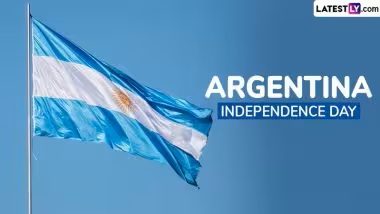
Word of the Day: Imprimatur
Today’s word of the day, courtesy of Words Coach (https://www.etymonline.com/search?q=imprimatur), is imprimatur. Pronounced / ˌɪm prɪˈmɑ tər / with the stress on the third syllable and the vowel like the a in ah, / ˌɪmˈprɪm ə tər / with the stress on the second syllable, or / ˌɪm prɪˈmeɪ tər / with the stress on the third syllable and vowel like the a in day, but always with a secondary stress on the first syllable, imprimatur means “an official license to print or publish a book, pamphlet, etc., especially a license issued by a censor of the Roman Catholic Church” or “sanction or approval” (https://www.dictionary.com/browse/imprimatur).
Etymonline.com says that the word first appears in the English language in “1640, Modern Latin, literally ‘let it be printed,’ the formula of a book licenser, third person singular present subjunctive passive of Latin imprimere ‘to print, engrave, stamp; press upon, press against,’ from assimilated form of in- ‘into, in, on, upon’ (from PIE root *en ‘in’) + premere ‘to press, hold fast, cover, crowd, compress’ (from PIE root *per- (4) ‘to strike’). Originally of state licence to print books, later only of Roman Catholic Church” (https://www.etymonline.com/search?q=imprimatur). So the first meaning of the word was specifically about printing books or other written material.
In fact, Merriam-Webster says, “Imprimatur means ‘let it be printed’ in New Latin. It comes from Latin imprimere, meaning to ‘imprint’ or ‘impress.’ In the 1600s, the word appeared in the front matter of books, accompanied by the name of an official authorizing the book’s printing. In time, English speakers began using imprimatur in the general sense of ‘official approval’” (https://www.merriam-webster.com/dictionary/imprimatur). I do not think that anybody puts imprimatur in the frontispiece of a book anymore, so I think it’s fair to say that the more common meaning today is the second, “sanction or approval.” We have talked about this semantic change before; it’s called generalization or broadening, and it’s pretty common in the English language. I might also point out that it appeared during a time in the history of the language when scholars were importing a lot of words from Latin. The word is Latin enough even in 1755 that Samuel Johnson does not include it in his Dictionary.
On this date in 1816, according to On This Day, “Argentina declares independence from Spain at the Congress of Tucumán” (https://www.onthisday.com/events/july/9).
Argentina is the fourth largest country by area in the Americas and the eighth largest in the world. It’s population is somewhere under 50 million people, making it the 32nd largest country in the world by population. For most of its prehistory, it was relatively sparsely populated. The northern part of modern-day Argentina was conquered by the Incas, but not until 1480, less than 30 years before the first Europeans came across it (https://en.wikipedia.org/wiki/Argentina).
Interestingly, Spain and Portugal each claimed Argentina for themselves, and the Pope had to step in, and the Treaty of Tordesillas separated South America between the two nations. Argentina went to Spain. This all happened in the late 15th century, before either the Spanish or the Portugese had even laid eyes on the continent. Pedro de Mondoza founded the settlement of Buenos Aires in 1536, but by 1541 it was abandoned (ibid.). Colonization continued throughout the 16th century, even the refounding of the capital in 1580.
Spain used Argentina (not called that) the way they used their other American colonies, exploiting it for whatever mineral resources it had (gold and silver in particular), but not really developing the economy. Buenos Aires had become the capital of the Viceroyalty of the Río de la Plata, what today is Argentina, Paraguay, Bolivia, Uruguay, and even parts of Brazil. During the week of May 18-25 in 1810, the leaders in the Viceroyalty began considerations of responding to the abdication of the King of Spain to Napoleon, who gave the throne to his brother, Joseph. The leaders formed a junta in opposition to Joseph, but the Spanish of course did not recognize the junta. When Napoleon fell, the royal houses of Europe reasserted their power. But by this time talk of forming a republic was in the air.
In 1816, Ignacio Álvarez Thomas—who had assumed the role of Supreme Director in place of José Rondeau—convened a General Constituent Congress in Tucumán, hoping to achieve a political definition” (https://derechadiario.com.ar/us/argentina/what-happened-july-9-1816-history-of-argentinas-independence-day).
Then, on July 9, 1816, “The Congress met in the house of Francisca Bazán de Laguna, which in 1941 was declared a National Historic Monument. Most of the representatives favored a constitutional monarchy, a model predominant in Europe. The republic, at that time, was a rarity that had only prospered in the United States. According to accounts from the time, the session began around two in the afternoon. The deputy from Jujuy, Teodoro Sánchez de Bustamante, proposed addressing the issue of independence. The secretary, Juan José Paso, then posed the decisive question: “Do you wish that the Provinces of the Union be a free and independent nation from the kings of Spain and their metropolis?” The response was unanimous. Thus, the Act of Independence was signed, proclaiming the end of the bond with the Spanish crown” (ibid.).
There was one little problem. Some of the members of the Congress had the funny notion that perhaps the Viceroyalty should give itself up to a different European monarchy, perhaps England. “Ten days later, on July 19, Pedro Medrano—deputy for Buenos Aires—proposed a key amendment… he promoted the inclusion of a clause that made it clear that independence was also from any foreign power” (ibid.).
History has not always been kind to Argentina since 1816. It has had its ups and downs as a country. It has endured military coups and oppressive dictatorships. Hopefully, as we advance in the 21st century, the people of Argentina will recall July 9, 1816, and they’ll remember that no government is legitimate without the imprimatur of the people.
The image today celebrates Argentina’s Independence Day. Happy Independence Day, Argentina.